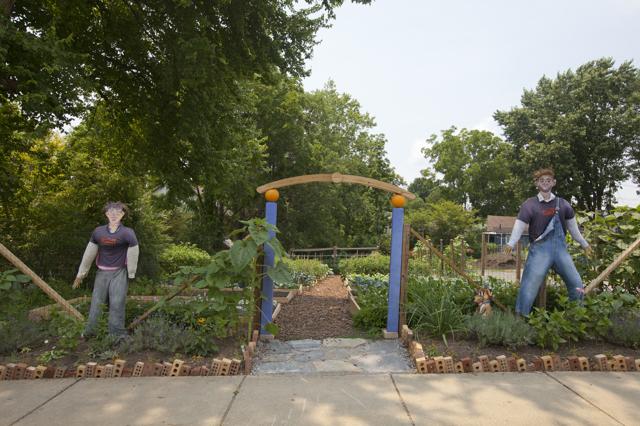In the wake of the WNC Community Media Center’s recent demise, Asheville City Council members are teaming up with the Buncombe County commissioners to lay the groundwork for the future of local public-access/community media. At their June 28 meeting, Council members approved a request for proposals for new community-media projects. City and county staff will evaluate the proposals, and both local governments are expected to vote on the final selection in September.
But the open-ended nature of the request exposed some philosophical differences among Council members. Interested groups will be asked to propose a community-media development project that may or may not involve a public-access channel. This is meant to encourage groups to use newer media options such as streaming video, and to partner with other local organizations, Director of Administrative Services Lauren Bradley explained.
“Seed money,” said Bradley, would be provided for three years in diminishing amounts until the new group became self-sustaining: $60,000 in the first year, dropping to $40,000 and then $20,000 in years two and three. The city and county would each cover half the cost. After that, neither government would provide additional funding.
But the broad approach seemed too vague to Mayor Terry Bellamy, who questioned the wisdom of not specifying a public-access station. “It’s not clear to me what’s going to come out of the $30,000 we’re going to invest,” she said, adding, “It sounds like it could go to just about anything.”
Council member Esther Manheimer, however, defended casting a wide net, which she said might elicit more innovative ideas that neither Council members nor city staff could predict. “I think the sentiment of a lot of folks in Asheville is that they’re not real pleased with the URTV model, and that might not be something, necessarily, we’d want to continue, so let’s make this RFP broad enough,” urged Manheimer.
Bellamy also raised questions about PEG moneys (funding for public-access, educational and local-government channels that’s distributed by the state), asking how those funds would be used if the chosen group didn’t plan to run a public-access station. In that case, Bradley explained, the PEG funds would support local government and/or educational channels, and the money for the new community-media project would come from the city’s and county’s general funds.
Council member Jan Davis said that while he’s long supported public access, the difficult economy means Council has to set its priorities differently. “We shepherded [public access] in, working in partnership with the county on that. … I was very hopeful for it, but that was a different economy and a different day.” The measure was approved 5-1, with Davis casting the lone opposing vote. Council member Cecil Bothwell was absent on vacation but said he would have supported the measure if he’d been there.
Bin there, done that
On a more tangible front, Council members unanimously approved rezoning a portion of the property occupied by the Sunny Point Café at the corner of Haywood Road and State Street in West Asheville. The area in question had been zoned RM-16 (residential, multifamily, high-density); the entire 0.66 acre parcel is now zoned for commercial use. The Sunny Point owners requested the change after receiving a citation for having a parking lot and trash bin in an area zoned residential.
The disputed property contains a small brick home and a garden where the restaurant grows some of its produce. As part of the rezoning, Sunny Point must install a privacy fence and additional landscape buffer between the parcel and adjacent properties. The restaurant will also be required to enclose its trash container (which will be limited to nonfood waste) and composting bins.
Other business
Council members also:
• Unanimously approved a $1.2 million contract with McGill Associates to provide engineering services for the Lake Craig flood-control project in east Asheville. Phase 1, which includes the engineering services as well as a roadway, utilities and river-relocation construction, is projected to cost about $4.15 million. Construction is expected to begin next summer, with completion the following spring.
• Heard an update from the Asheville Area Riverfront Redevelopment Commission. Established a year ago, the commission is charged with promoting the sustainability and continued development of the riverfront. The group recommended strengthening the city’s presence in the area by promoting sustainable development and making infrastructure improvements, such as sidewalks and water lines. The group also recommended hiring a consultant to to review proposed regulations for the district.
• Appointed Flora Marr and Elizabeth Franks to the Civic Center Commission.
• Appointed Gwynne Rukenbrod and Jennifer Gordon to the Public Art Board.
— Christopher George can be reached at 251-1333, ext. 140, or at cgeorge@mountainx.com.




I’m glad council found another way to spend money out of the general fund re: new media. It’s not like the general fund is below where it’s supposed to be according to the city’s own ordinances…oh wait, ooops, it is.
As I understand it, any money spent from the general fund would essentially be the money that would otherwise go to run the Asheville Gov. channel. The PEG funds that don’t go to Public Access could then be used for the gov. channel, with no net loss to the City.
Barry,
The point is that when your funding is below where it is required to be by your own rules, you should attempt to rebuild the fund – not maintain current spending levels and be happy the fund isn’t shrinking even more.